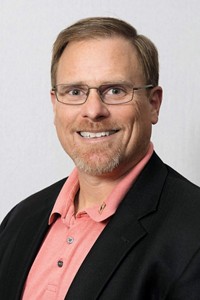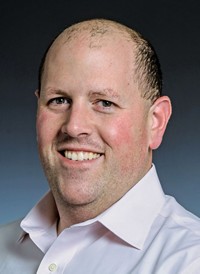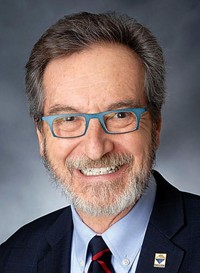Advertisement
Grab your lab coat. Let's get started
Welcome!
Welcome!
Create an account below to get 6 C&EN articles per month, receive newsletters and more - all free.
It seems this is your first time logging in online. Please enter the following information to continue.
As an ACS member you automatically get access to this site. All we need is few more details to create your reading experience.
Not you? Sign in with a different account.
Not you? Sign in with a different account.
ERROR 1
ERROR 1
ERROR 2
ERROR 2
ERROR 2
ERROR 2
ERROR 2
Password and Confirm password must match.
If you have an ACS member number, please enter it here so we can link this account to your membership. (optional)
ERROR 2
ACS values your privacy. By submitting your information, you are gaining access to C&EN and subscribing to our weekly newsletter. We use the information you provide to make your reading experience better, and we will never sell your data to third party members.
Careers
Make An ACS Public Policy Fellowship Part Of Your Career Path
by Connie J. Murphy
March 19, 2012
| A version of this story appeared in
Volume 90, Issue 12

Election-year hype threatens to drown out the voices of chemical scientists who want to help shape public policy. Ensuring that decisionmakers from town halls to Capitol Hill know that chemists are ready to help, and making that help easy to obtain, is a prime goal of the American Chemical Society’s Committee on Chemistry & Public Affairs (CCPA) and the Office of Public Affairs (OPA).
Our efforts range from organizing congressional visits by ACS member volunteers to facilitating grassroots activism at the local level. One of our most important activities is also one of our oldest. Since 1975, ACS has sponsored two Washington, D.C.-based public policy fellowship programs: the ACS Congressional Fellowship program and the ACS Science Policy Fellowship program.
Members of the House of Representatives and the Senate routinely evaluate issues and make decisions that would benefit from input from the chemistry community. But knowledgeable scientists are not easy to find on the Hill. The ACS public policy fellowship programs are designed to help address this scarcity. The fellowships provide a unique opportunity for ACS members to serve our nation’s lawmakers by bringing their expertise to bear on issues of national importance while gaining practical experience and insight into public policy. If you have a sincere interest in the policy process and have wondered how you could make a difference in science policy in particular, you should consider an ACS public policy fellowship.
If you will be going to the ACS national meeting in San Diego, plan to attend “Making a Science Fellowship Part of Your Career Path,” a panel discussion featuring five current and former public policy fellows who will talk about their experiences and the impact of these fellowships on their careers. The panel will be held on Tuesday, March 27, from 3:15 to 5 PM in the San Diego Convention Center, Room 26B. In addition, one of this year’s ACS congressional fellows, Christopher Avery, will be at the OPA booth in the expo hall on Monday, March 26, from 2 to 3 PM.
The ACS Congressional Fellowship program is part of a broader effort administered by the American Association for the Advancement of Science (AAAS). Altogether, more than 30 scientists serve annually as congressional fellows (fellowships.aaas.org). The initiative has two main goals: to provide policymakers with high-quality information on science-related issues and to educate scientists on how government works and how science policy is made. Congressional fellows work in a legislator’s office or for a House or Senate committee. ACS and AAAS provide placement support. Fellows typically serve as legislative assistants, advising staff and members of Congress on a variety of science policy issues and interacting with constituents.
Our second program, the ACS Science Policy Fellowship, places an ACS member at the society’s headquarters in Washington, D.C. The fellow works with experienced OPA staffers whose job it is to provide information to policymakers on science that relates to public policy, advance specific recommendations on issues affecting the chemical enterprise, and inform ACS members about and involve them in the policy process. The science policy fellowship enables fellows to develop understanding and experience in public affairs, and it also provides a source of technical insight for OPA.
Congressional fellowships begin with an intensive eight-day orientation that provides an overview of the federal policy-making process and includes briefings from influential political scholars, top government officials, and prominent journalists. Ongoing professional development and support activities, including educational seminars and networking opportunities, are provided by ACS and AAAS throughout the program for both congressional and science policy fellows. Fellows are provided with a competitive stipend (between $70,000 and $80,000 per year, depending on experience) plus allowances for relocation, travel, and health insurance. Fellows can also obtain additional financial assistance, such as sabbatical leave support, with prior ACS approval.
Fellows come from a wide variety of backgrounds within the chemical sciences—including academia, industry, and the nonprofit sector—and could be entry-level Ph.D.s or experienced professionals. After completing their fellowships, approximately one-third of the ACS fellows have remained in public policy careers; another third have returned to their previous positions; and the rest have pursued new opportunities. The common denominator for all fellows has been a keen interest in public policy coupled with a desire to apply their scientific training to help improve the federal decision-making process. If you share these interests, I encourage you to consider applying for one of these positions. Applications for ACS Congressional and Science Policy Fellowships are due on Dec. 31.
An article in C&EN (Aug. 8, 2011, page 54) provides brief profiles of the fellows who served in 2010–11 and 2011–12. Their broad range of interests, education, and career backgrounds will help you understand how you too could fit in.
For more information, visit www.acs.org/policyfellow or call the ACS Office of Public Affairs at (202) 872-4387. Then talk about the program with your colleagues, your friends, and your family. This may be just the opportunity you’ve been looking for.





Join the conversation
Contact the reporter
Submit a Letter to the Editor for publication
Engage with us on Twitter